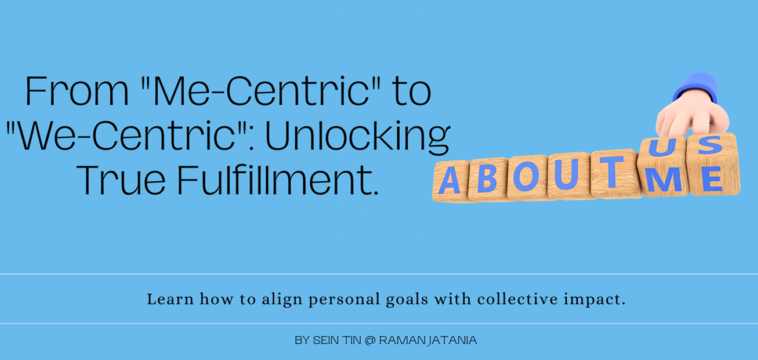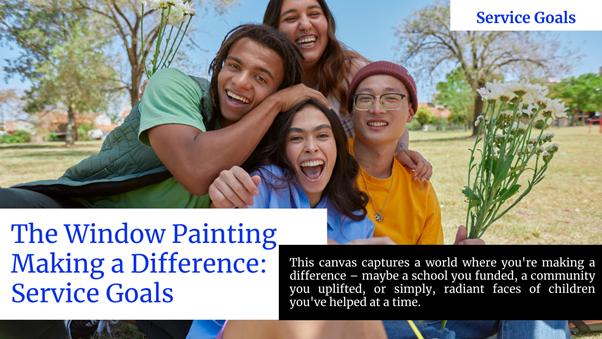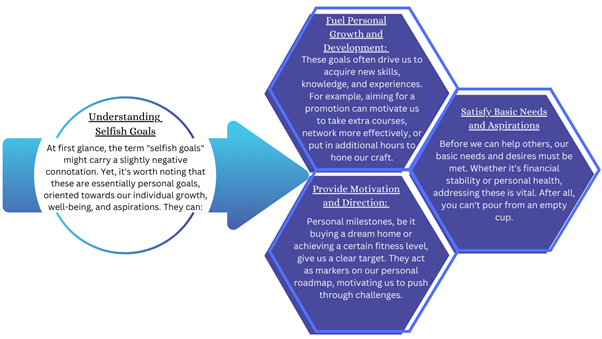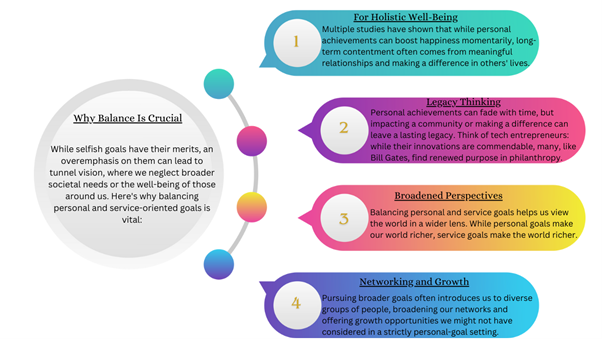From Mirrors to Windows: A New Approach to Goal-Setting
Article Date | 18 December, 2023By Sein Tin, Lecturer in Business at LSST Elephant & Castle Campus
How Shifting from ‘Me-Centric’ to ‘We-Centric’ Ambitions Can Unlock True Fulfilment

I recently watched Simon Sinek’s interview on ‘Diary of a CEO.’ It was more than just inspiring—it made me think hard about what my goals really mean. I want to explain what I learned and why it was so eye-opening.
Imagine two paintings.
The Mirror Painting (Selfish Goals): It reflects everything you desire – a grand mansion, a sleek sports car, perhaps even a model-like physique. It’s dazzling but focuses solely on you.
The Window Painting (Service Goals): This canvas captures a world where you’re making a difference – maybe a school you funded, a community you uplifted, or simply, radiant faces of children you’ve helped.


Created by author
Here’s the kicker: while the allure of the mirror painting is undeniable, it’s the window painting that truly enriches the soul.
Top-tier athletes can be seen as epitomes of the mirror painting. Racing to break records, they often find themselves lost post-victory. The realisation hits hard:
> Purpose, once the race ends, becomes a vague shadow.
> Relationships, tailored around success, may lack depth.
> Personal triumphs, though sweet, can feel isolating without shared joy.
We, as inherently social beings, thrive on shared experiences, value addition, and authentic connections.
Now, reflect on the journey of Sir Nicholas Winton, who saved 669 children during the Holocaust as discussed by Brade and Holmes (2017). While the number might seem small in the face of millions affected, the legacy he left behind is immeasurable. His actions not only changed the lives of those children but also of their subsequent generations. This is the beauty of service goals – even if they impact a smaller group, the depth of that impact can reverberate for generations.
A Shift in Perspective
As I looked back, my previous goals resembled a personal wishlist: climbing the corporate ladder, seeing my name on a bestsellers list, and watching my social media numbers soar. My priorities were clear:
> Boost my bank balance.
> Upgrade my lifestyle.
> And if there’s time, maybe do a bit for others.
But a wave of realisation washed over me. Now, instead of solely chasing personal accolades, I’m turning my gaze outward, inspired to weave a narrative that involves more than just my own dreams. Because, maybe, the true essence of a meaningful life lies in lifting others alongside us.Certainly. It’s essential to recognise that selfish goals aren’t inherently bad; in fact, they often form the foundation upon which we can later pursue service-oriented goals. Let’s delve into the merits of selfish goals, and why a balance is crucial.
The Merits of Selfish Goals and the Importance of Balance
Understanding Selfish Goals

Why Balance Is Crucial

Created by author
Charting a New Course: Steps to Transition from ‘Me’ to ‘We’
If you, like me, find yourself reflecting on how to pivot from personal gains to broader impacts, here are actionable steps inspired by real-life narratives:
Commit to Continuous Learning: Begin with dedicating time to understand global or community needs. It could be as simple as a weekly hour set aside for reading, watching documentaries, or attending local community meetings. Consider the likes of Oprah Winfrey. She transitioned from being a successful TV host to establishing a school in South Africa, continually educating herself about global needs. Start with reading books or attending workshops that shift your focus from individual success to collective progress.
Mentorship as a Two-Way Street: Both being mentored and mentoring someone can offer fresh perspectives. The tech giant Steve Jobs had mentors in his early days and later became a guiding force for Mark Zuckerberg. Through mentorship, you’ll naturally start to see the bigger picture, realizing that your success can be a ladder for others.
Engage with the Grassroots: Before thinking global, understand local. Start with your immediate community. Could you volunteer, join local initiatives, or even start a small group dedicated to a cause? Often, the most profound impacts start right at home.
Foster Collaborations: Partnerships can amplify impact. It might be in the form of teaming up for a project, seeking feedback, or brainstorming with peers. Collaborative endeavors often lead to outcomes larger than the sum of their parts.
Redefine Your Success Metrics: Instead of just personal gains, think of the broader impacts of your actions. Chef José Andrés, beyond his restaurants, looked at how he could address hunger during crises, leading to the World Central Kitchen. What ripple effects can your achievements create?
Reflect Regularly: Dedicate time, perhaps in a journal or digital note-taking app, to contemplate your goals and their wider effects. This isn’t just about recording, but about introspecting and understanding your journey’s broader implications.
Question and Innovate: Sometimes, the existing way of doing things isn’t the best. Don’t hesitate to question norms or think outside the box. How can you, in your capacity, challenge and improve the current standards?
Forging Ahead Together
As we stride forward, crafting a path interwoven with shared aspirations and collective dreams becomes essential. The journey might demand patience and persistence, but the destination – a world enriched by collaborative efforts – is undeniably worth it.
I invite you to embrace this vision, drawing inspiration from the myriad stories of transformation around us, and crafting your own tale of impactful success.
Here’s to painting brighter canvases!
Reference List:
Brade, L.E. and Holmes, R. (2017) ‘Troublesome Sainthood: Nicholas Winton and the Contested History of Child Rescue in Prague, 1938–1940’, History and Memory, 29(1), pp. 3-40. Available at: https://www.jstor.org/stable/10.2979/histmemo.29.1.0003 (Accessed: 28/11/2023).




